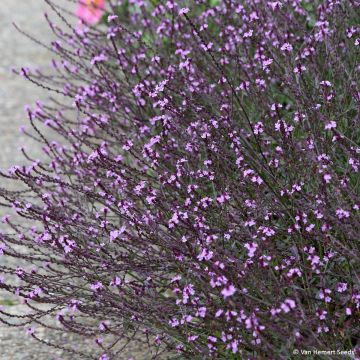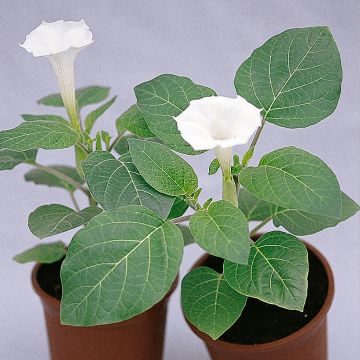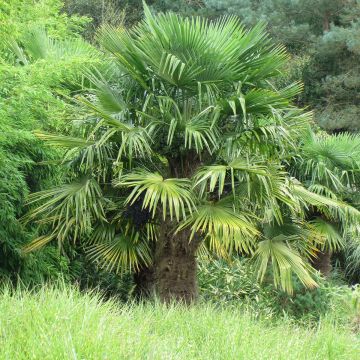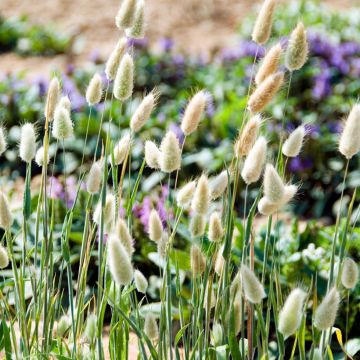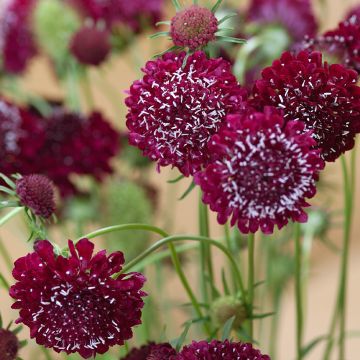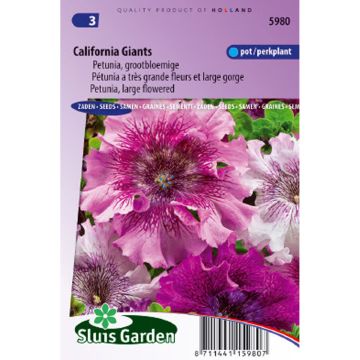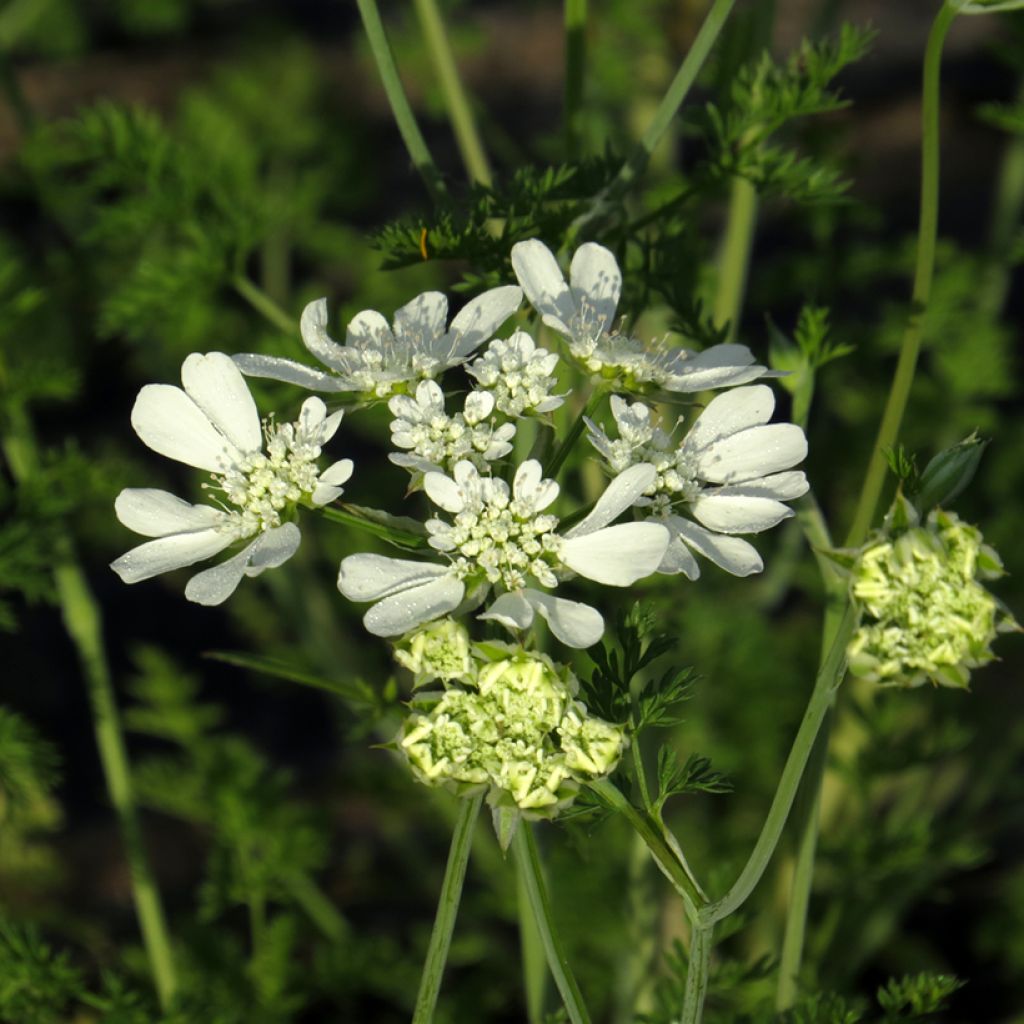

Orlaya grandiflora Seeds - White laceflower
Orlaya grandiflora Seeds - White laceflower
Orlaya grandiflora
White laceflower
This item cannot be shipped to the selected country
Dispatch by letter from €3.90
More information
Schedule delivery date,
and select date in basket
This plant carries a 6 months recovery warranty
More information
We guarantee the quality of our plants for a full growing cycle, and will replace at our expense any plant that fails to recover under normal climatic and planting conditions.
Seed-only orders are dispatched by sealed envelope. The delivery charge for seed-only orders is €3.90.
Does this plant fit my garden?
Set up your Plantfit profile →
Description
Orlaya grandiflora, also known as Large-flowered Orlaya or Large-flowered Caucalis, is a wild annual plant that thrives in sunny, dry, and limestone soils. It charms with its white umbels, as delicate as lace. The plant blooms between June and August, forming light tufts of finely cut foliage. When conditions are favourable, it self-seeds spontaneously. Essential in natural gardens, it enhances all the plants that accompany it, whether in flowerbeds or bouquets.
This annual plant belongs to the Apiaceae family (Umbelliferae) and thrives in limestone and clay fields, as well as sunny rocky scree. It is native to Central and Southern Europe, the Caucasus, and North Africa. This annual plant blooms in summer, from June to August-September, in the year of sowing. It grows in light tufts, reaching 20 to 40 cm in height. Its slender stems are highly branched and bear flowers grouped in flat umbels of a very pure white, 8 cm in diameter, composed of 5 to 6 ray florets. The petals of the flowers arranged around the umbel are much longer than those of the central flowers, accentuating the lace-like appearance. Orlaya develops from a taproot. It initially forms a basal rosette, from which stems adorned with elegant and finely cut foliage emerge, finer than that of its cousin, the carrot. Flowering is followed by ovoid fruits, measuring up to 8 mm in length, with whitish, hooked prickles. When conditions are favourable, it self-seeds randomly in the garden.
The Large-flowered Orlaya is an elegant, non-invasive plant that can be directly sown in open ground, in a natural garden. It will create beautiful compositions alongside Buenos Aires verbenas, Ammi visnaga 'The Giant', Damasque nigellas, Californian poppies, and ornamental carrots, for example. In flowerbeds, it can be associated with dwarf roses and lavenders. Its flowers are also highly appreciated in floral art.
Report an error about the product description
Flowering
Foliage
Plant habit
Botanical data
Orlaya
grandiflora
Apiaceae
White laceflower
Caucalis grandiflora, Caucalis daucoides
Mediterranean
Other Flower seeds
Planting and care
Two methods of sowing:
1- Sow Orlaya seeds from March to May on the surface of a special sowing compost, in pots or trays, and cover with a thin layer of compost or vermiculite. Enclose the tray in a polythene bag and keep at a temperature between 15 and 20 °C. After sowing, do not exclude light, as it promotes germination. Keep the surface of the compost moist, but not waterlogged; germination usually takes 21 to 30 days.
2- The seeds can also be sown outdoors directly in place, in late summer or early autumn, to obtain earlier flowers the following year.
When the young plants are sufficiently developed, transplant them into 7.5 cm diameter pots or trays. Plant them in the garden, spacing them 30 cm apart.
Cultivation:
Orlaya grandiflora appreciates sun and heat. It is capable of growing in poor soils and difficult conditions. However, the soil must be well-draining, with a tendency towards chalky or excessively alkaline. The poorer in nutrients the soil is, the smaller the plant will be. In humus-bearing and rich soil, it will reach a height of 70 cm, but it may tend to lean. It grows and flowers easily, sometimes self-seeding spontaneously, which creates beautiful natural borders that require little maintenance. It is not invasive, as unwanted seedlings can be easily pulled out.
Sowing period
Intended location
This item has not been reviewed yet - be the first to leave a review about it.
Haven't found what you were looking for?
Hardiness is the lowest winter temperature a plant can endure without suffering serious damage or even dying. However, hardiness is affected by location (a sheltered area, such as a patio), protection (winter cover) and soil type (hardiness is improved by well-drained soil).

Photo Sharing Terms & Conditions
In order to encourage gardeners to interact and share their experiences, Promesse de fleurs offers various media enabling content to be uploaded onto its Site - in particular via the ‘Photo sharing’ module.
The User agrees to refrain from:
- Posting any content that is illegal, prejudicial, insulting, racist, inciteful to hatred, revisionist, contrary to public decency, that infringes on privacy or on the privacy rights of third parties, in particular the publicity rights of persons and goods, intellectual property rights, or the right to privacy.
- Submitting content on behalf of a third party;
- Impersonate the identity of a third party and/or publish any personal information about a third party;
In general, the User undertakes to refrain from any unethical behaviour.
All Content (in particular text, comments, files, images, photos, videos, creative works, etc.), which may be subject to property or intellectual property rights, image or other private rights, shall remain the property of the User, subject to the limited rights granted by the terms of the licence granted by Promesse de fleurs as stated below. Users are at liberty to publish or not to publish such Content on the Site, notably via the ‘Photo Sharing’ facility, and accept that this Content shall be made public and freely accessible, notably on the Internet.
Users further acknowledge, undertake to have ,and guarantee that they hold all necessary rights and permissions to publish such material on the Site, in particular with regard to the legislation in force pertaining to any privacy, property, intellectual property, image, or contractual rights, or rights of any other nature. By publishing such Content on the Site, Users acknowledge accepting full liability as publishers of the Content within the meaning of the law, and grant Promesse de fleurs, free of charge, an inclusive, worldwide licence for the said Content for the entire duration of its publication, including all reproduction, representation, up/downloading, displaying, performing, transmission, and storage rights.
Users also grant permission for their name to be linked to the Content and accept that this link may not always be made available.
By engaging in posting material, Users consent to their Content becoming automatically accessible on the Internet, in particular on other sites and/or blogs and/or web pages of the Promesse de fleurs site, including in particular social pages and the Promesse de fleurs catalogue.
Users may secure the removal of entrusted content free of charge by issuing a simple request via our contact form.
The flowering period indicated on our website applies to countries and regions located in USDA zone 8 (France, the United Kingdom, Ireland, the Netherlands, etc.)
It will vary according to where you live:
- In zones 9 to 10 (Italy, Spain, Greece, etc.), flowering will occur about 2 to 4 weeks earlier.
- In zones 6 to 7 (Germany, Poland, Slovenia, and lower mountainous regions), flowering will be delayed by 2 to 3 weeks.
- In zone 5 (Central Europe, Scandinavia), blooming will be delayed by 3 to 5 weeks.
In temperate climates, pruning of spring-flowering shrubs (forsythia, spireas, etc.) should be done just after flowering.
Pruning of summer-flowering shrubs (Indian Lilac, Perovskia, etc.) can be done in winter or spring.
In cold regions as well as with frost-sensitive plants, avoid pruning too early when severe frosts may still occur.
The planting period indicated on our website applies to countries and regions located in USDA zone 8 (France, United Kingdom, Ireland, Netherlands).
It will vary according to where you live:
- In Mediterranean zones (Marseille, Madrid, Milan, etc.), autumn and winter are the best planting periods.
- In continental zones (Strasbourg, Munich, Vienna, etc.), delay planting by 2 to 3 weeks in spring and bring it forward by 2 to 4 weeks in autumn.
- In mountainous regions (the Alps, Pyrenees, Carpathians, etc.), it is best to plant in late spring (May-June) or late summer (August-September).
The harvesting period indicated on our website applies to countries and regions in USDA zone 8 (France, England, Ireland, the Netherlands).
In colder areas (Scandinavia, Poland, Austria...) fruit and vegetable harvests are likely to be delayed by 3-4 weeks.
In warmer areas (Italy, Spain, Greece, etc.), harvesting will probably take place earlier, depending on weather conditions.
The sowing periods indicated on our website apply to countries and regions within USDA Zone 8 (France, UK, Ireland, Netherlands).
In colder areas (Scandinavia, Poland, Austria...), delay any outdoor sowing by 3-4 weeks, or sow under glass.
In warmer climes (Italy, Spain, Greece, etc.), bring outdoor sowing forward by a few weeks.

































